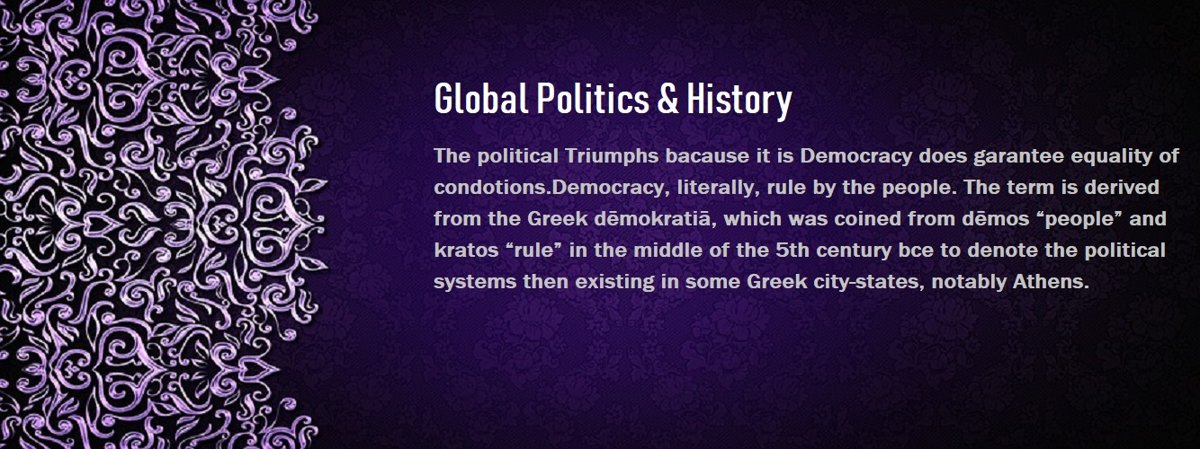ISRAEL USES SYSTEMATIC VIOLATIONS,UNUSUAL PUNISHMENT,ATTACKED, ARRESTED THOUSAND OF PALESTINE CHILDREN,IT'S SINCE ISRAEL - PALESTINE WAR (1948) .STOLEN CHILDHOOD PALESTINIAN CHILDREN AND THE STRUCTURE OF GENOCIDAL DISPOSSESSION
Israel has not only been detaining Palestinian minors over stone throwing , the occupying force in Palestine has also been torturing most of those Palestinian children including beatings and sexual assaults, the Palestinian Committee of Prisoners’ Affairs said.An estimated 7,000 Palestinian children aged between 12 and 17 have been arrested, interrogated and detained since 2002. Palestinian children 'routinely tortured & used as human shields by Israeli forces',children arrest, settler colonialism, and the Israeli Juvenile system: A case study of occupied east Jerusalem. Minors are systematically subjected to physical and verbal abuse, threatened with death, physical violence and sexual assault.Israel tortures Palestinian children kept in prison for Months.Palestinian children in Occupied East Jerusalem (OEJ) have faced high rates of arrest. The article examines violence against children during arrest by juxtaposing state official documents recording debates and analyses of children’s rights with published reports by human rights and civil society organizations. The article suggests that arrested children in OEJ suffer from three intersecting discriminatory regimes: structural discrimination that targets them as criminals based on their ethnicity; a lack of assistance as they fall under the responsibility of neither the Palestinian nor the Israeli socio-legal systems; and limited access to welfare, justice, and educational oppor- tunities. The article concludes by suggesting that Palestinian children face severe structural violence that amounts to state-hate criminality and civil society resources. The article argues that criminologists must be attentive to the politics of targeting and marking children in the context of past and present structural violence . Borrowing from scholarly work addressing state violence against colonized chil- dren, mainly in settler-colonial contexts such as Australia, Canada and the US the following paper adopts Shalhoub-Kevorkian’s (2014) critique of the control of Palestinian childhood and draws upon Ward’s work on the state’s employment of violence to estab- lish and maintain relations of racial domination and subordination. Although Ward’s theorization pertains to minority children, Shalhoub-Kevorkian (2015) invokes it in the settler-colonial context, claiming that Israel’s violation of children’s rights, particularly through the political work of child arrest, could be considered a form of state-hate criminality Children's Rights.The group said most of the children are interrogated and questioned by Israeli police and investigators for hours without any legal representation or a parent present. Before the beginning of the new wave of unrest last October, Israel had reportedly not used indefinite detention against Palestinian minors.Tamir Abu Salem, a 14-year-old Palestinian boy from Aida refugee camp in the West Bank who was arrested last year by Israeli forces, told Ukka that soldiers shot him in the head with a rubber-coated steel bullet before he was taken into custody when he was also punched in the face.Tamir said the bullet fractured his skull. "When I breathe part of my scalp puffs up and down," he added.
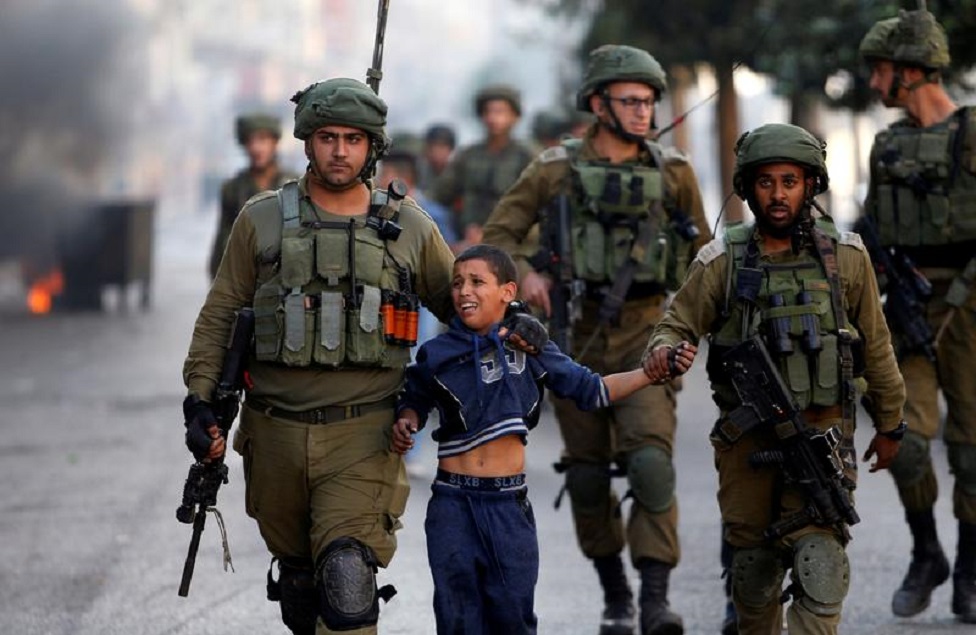
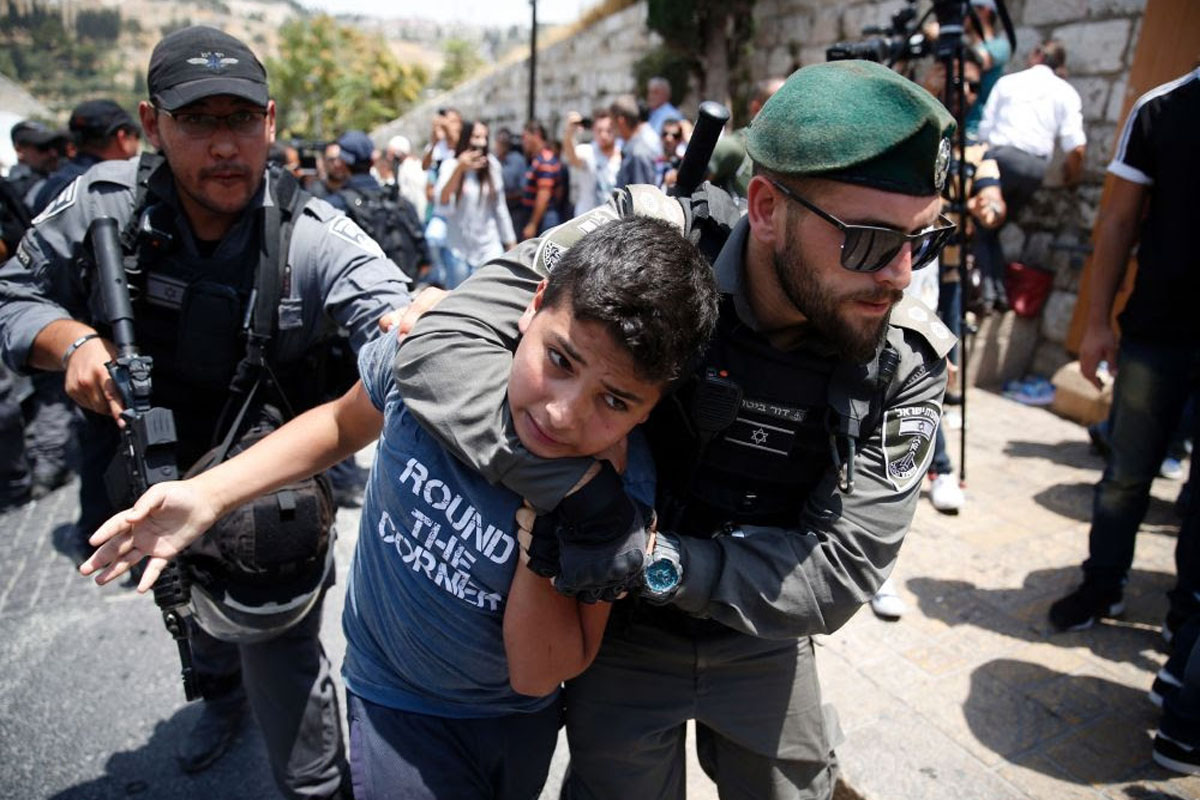
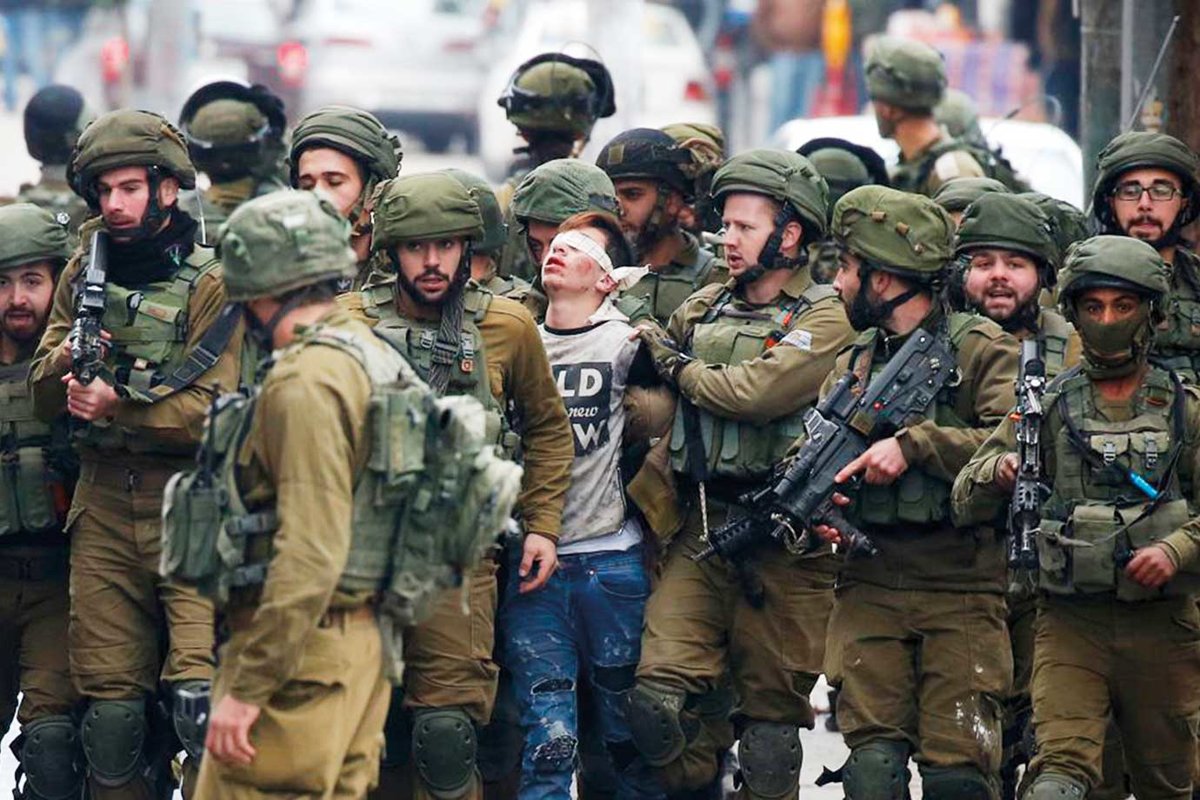 IDF
soldiers testify to ill-treatment of Palestinian children.The report
features 47 testimonies highlighting the harassment, arrest,
and mistreatment of Palestinian children living under Israeli
occupation.Once the children lit the Molotov cocktails, they “were free
game,” according to a soldier’s testimony.Each
of these deaths is abhorrent, let there be no mistake. The question is,
how can we address the most systemic and pervasive offenses, including
the documented abuses of children put under arrest and imprisoned by the
Israeli military forces.
IDF
soldiers testify to ill-treatment of Palestinian children.The report
features 47 testimonies highlighting the harassment, arrest,
and mistreatment of Palestinian children living under Israeli
occupation.Once the children lit the Molotov cocktails, they “were free
game,” according to a soldier’s testimony.Each
of these deaths is abhorrent, let there be no mistake. The question is,
how can we address the most systemic and pervasive offenses, including
the documented abuses of children put under arrest and imprisoned by the
Israeli military forces.
There's no beautifying Israel's treatment of Palestinian children.The central problem at the heart of Israel’s half-century old military court system is clear: these courts will never reflect the interests of the defendants, but rather that of the regime of occupation.Palestinian children have suffered disproportionately as a result of the Israeli Occupation.During the first Intifada in Israel-Palestine, one of the most controversial aspects of the Israeli reaction to the uprising in 1987 was Yitzhak Rabin’s reputed policy of ordering soldiers to break the bones of those throwing rocks, as shown in this video. While Rabin denied having soldiers break the bones of demonstrators, he did admit to ordering the extra-judicial application of ''force, might and beatings'' upon civilians. Since that time, whether it be an official policy or not, such practices emphatically illegal under international human rights law continue unabated. What has recently been brought into the public eye is that such illegal beatings and other acts of violence continue to be aimed not only at adults, but also at Palestinian children, some as young as 11 years old.Palestinian children detained by Israeli forces in the occupied West Bank last year fell victim to a pattern of abuse designed to coerce confessions.Among the most troubling experiences were prolonged periods of solitary confinement, a correctional tactic primarily reserved for adult prisoners and, even then, only after they are convicted. In 2014, the average time an individual child spent in solitary confinement for interrogation purposes was 15 days, according to DCIP research. In one case, Israeli authorities kept a child in isolation for 26 total days.Israeli military, police and security agents held 54 Palestinian children in solitary confinement for interrogation purposes prior to charging them with any offense.Data compiled by DCIP from 107 affidavits of Palestinian children showed the vast majority had to fend for themselves. Unlike their Israeli counterparts, Palestinian children have no right to be accompanied by a parent during an interrogation. In 93 percent of cases, children were deprived of legal counsel, and rarely informed of their rights, particularly their right against self-incrimination.Settlers living in the West Bank carrying out violence against Palestinians is no new phenomenon, Israeli human rights NGO B’Tselem refer to it as having “long since become part of Palestinians’ daily life under occupation.” Yet a rise in aggressive incidents is still a cause for concern for Palestinians living in close proximity to illegal settlements. B’Tselem felt unable to offer any reasoning for the increased attacks.Incidents of settler violence are coupled with hollow accountability and poor law enforcement by Israeli authorities, while Palestinian police are forbidden from responding. Standing amid rubble of what was Abu a-Nawar’s 3rd and 4th grade classrooms, the disparities between the 650 person Bedouin village and the 21st century Israeli settlement, Ma’ale Adumim are undeniable.The village behind is an assorted collection of wood-framed shelters on concrete slabs, covered with a patchwork of cloth, metal and plastic. There are small pens to keep in the goats, and a crisscrossing web of wires bringing electricity, 'illegally’, from the nearest town a kilometer away. A knobby dirt road is the only way in or out.Ma’ale Adumim creeps over the edge of the butte and down into the ravine directly adjacent to Abu a-Nawar. The multi-story homes loom over the village, neatly spaced floodlights midway down the side of the gulch, satellite dishes, paved roads in what is clearly a tight suburban development. A security tower, is perched, overlooking everything.In fact, from the rubble, there are three visible security towers. One to the north, Ma’ale Adumim, one to the immediate south, and one to the east, all on the edges of the low foothills leading into the valley below.
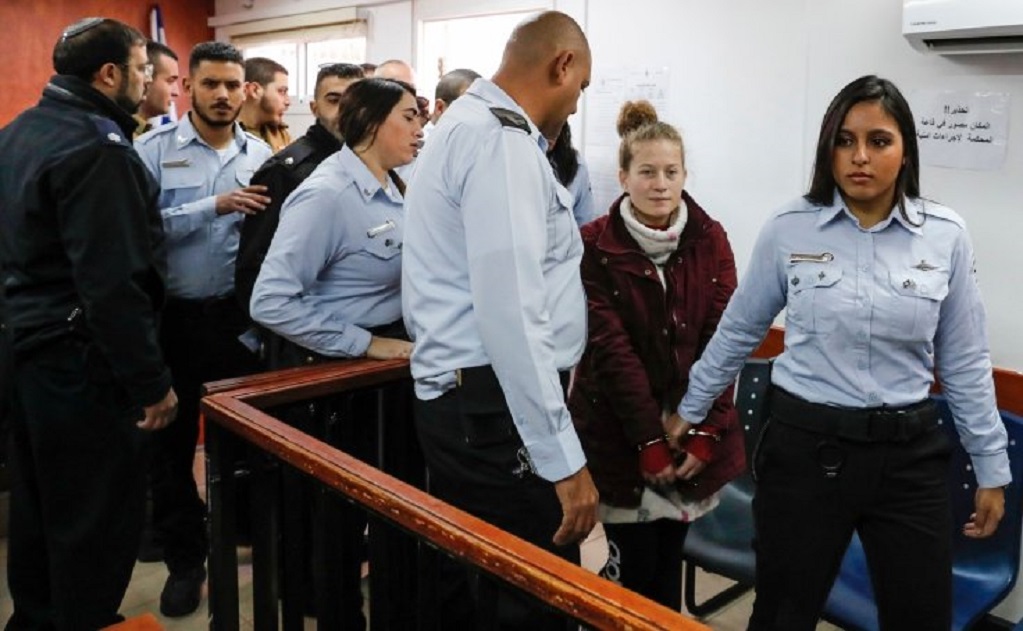
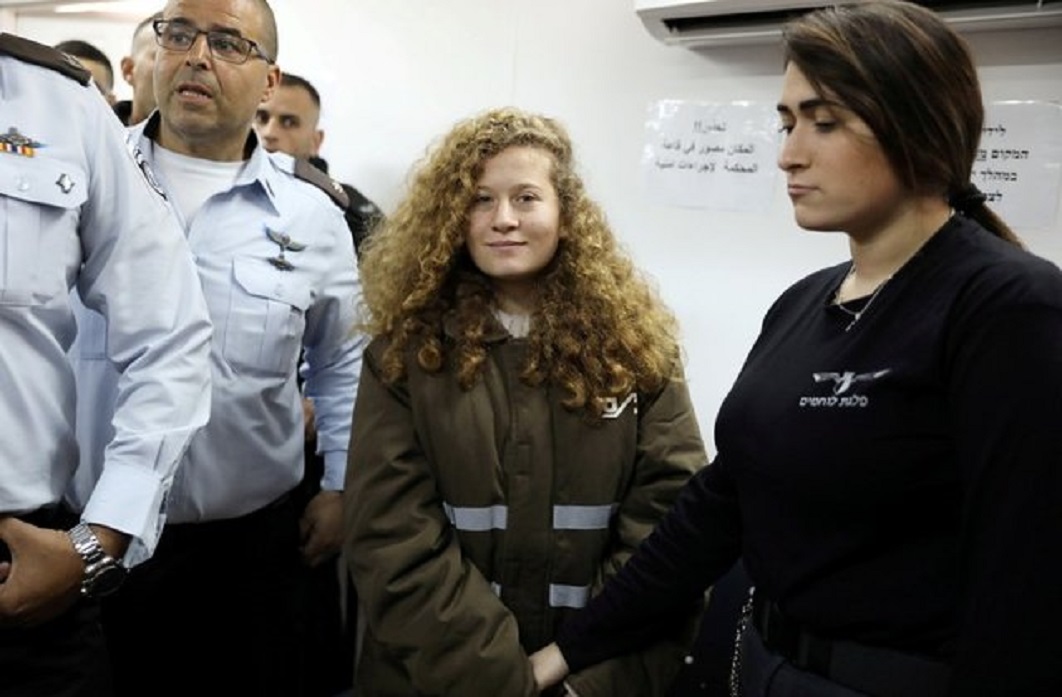 Judge
orders trial of Palestinian girl, 17, filmed slapping and punching two
Israeli soldiers to be held behind closed doors as she appears at
military court.Ahed
Tamimi's story, will come as news to you, despite the mainstream
media's best efforts.Tamimi was arrested early on 19 December following a
confrontation with two
Israeli soldiers a few days earlier at her family home in Nabi Saleh
near Ramallah.The 16-year old, along with her cousin, was telling the
soldiers to leave her house before things eventually escalated to the
use of physical force, when one of the soldiers slapped her. The
situation escalated and led to the shooting of Ahed's 14-year-old
cousin, Mohammed, in the face.
Judge
orders trial of Palestinian girl, 17, filmed slapping and punching two
Israeli soldiers to be held behind closed doors as she appears at
military court.Ahed
Tamimi's story, will come as news to you, despite the mainstream
media's best efforts.Tamimi was arrested early on 19 December following a
confrontation with two
Israeli soldiers a few days earlier at her family home in Nabi Saleh
near Ramallah.The 16-year old, along with her cousin, was telling the
soldiers to leave her house before things eventually escalated to the
use of physical force, when one of the soldiers slapped her. The
situation escalated and led to the shooting of Ahed's 14-year-old
cousin, Mohammed, in the face.
On April 9, footage of Ahed Tamimi’s interrogation, following her arrest last December, showed a police interrogator and an Israeli military intelligence officer, both male, soliciting various tactics to coerce Ahed into speaking.The entire incident was filmed and the footage has since been viewed and shared globally with both solidarity and admiration over these young girls' uncompromising stand, as well as outrage from Zionists who have demanded punishment ranging from imprisonment to crude violations of human rights.Ahed Tamimi is facing 12 charges made by the Israeli authorities, including incitement, making threats, assault, and stone-throwing which relate to six different incidents.To make matters worse, more of the family members have since been arrested including her 43-year old mother Narimen Tamimi who faces five charges, as well as her 21-year-old cousin, Nour Naji Tamimi. During a protest demanding their release from Ofer prison, Ahed Tamimi's cousin Manal Tamimi was also arrested.The targeting of this family is, in many ways, unsurprising. Indeed, the family is known for its long standing opposition and resistance to the Israeli occupation, as well as its regular participation in various protests in the West Bank, often captured through images and video streaming.She responded largely with silence.Ahed Tamimi’s father, Bassem Tamimi addressed a press conference held in Ramallah, stating his daughter “understands what it means to resist this occupation.”He called her silence during interrogation a strategy of resistance. Bassem told press that by refusing to even answer her name, she showed resistance to occupation in all its forms.Ahed demonstrated this rejection of the entire system of occupation by telling reporters “there is no justice under occupation and this court is illegal,” after her sentencing.Ahed’s treatment mirrors the findings of B’Tselem’s recent report on the systematic violations of minors in Israeli courts which found, for instance, Palestinian minors to be deprived of food, sleep and water before interrogations.Bassem said Ahed was deprived of sleep for over 34 hours in the final round of interrogations.Other psychological tactics employed were isolation; continuous transportation through what he described as “essentially a metal box” and intimidation and threats from other criminals.Bassem contextualised the interrogation footage by saying it shows “how Israel targets the Palestinian child” and “the occupation targets childhood.”45,000 Palestinian children have been detained by the military in the last 50 years and human rights organisations have reported violent arrests, traumatising interrogations, the use of solitary confinement and even reports of electric shocks, strangulation and being kept naked in the cold.Efforts to elicit a response from Ahed also involved threatening to take people known to her into custody if she did not speak about them.“It’s in your hands,” the interrogators told her, after listing some names.In another portion of the footage interrogators remarked to Ahed about her appearance.One officer told her her white skin reminded him of her sister. “How are you in the sun?” he asked, “Like my sister? Red, red, red?”Ahed’s Israeli lawyer, Gaby Lasky, has accused interrogators of sexual harassment following the footage, based upon the questioning being inappropriate for a female minor and the lack of another female in the room.“I see you as my sister, she [Nariman Tamimi, Ahed’s mother] is like my mother because you know she is older,” the officer continued, trying to evoke a personal response.When Ahed did speak, it was usually to repeat the refrain, “I hold the right to remain silent.”Otherwise the footage shows her sitting steadfast and defiant, appearing unflapped, avoiding eye contact and looking straight ahead.At one point she stretches her neck. An interrogator meanwhile sits with his chair facing her, shouting and gesticulating.Baseem concluded that the footage shows “Ahed and her generation are not victims but fighters.”In sharing this video, he hopes they can teach children “how to confront the interrogator without fear entering their hearts” while hoping parents watching can see how their children, collectively, are strong and able to confront occupation.Three other Palestinians were reported injured with rubber-coated steel bullets during the clashes.The teenager is a distant relative of Ahed Tamimi, the 16-year-old Palestinian activist who is currently facing charges in an Israeli military court after she was filmed slapping a soldier .The Israeli army told Israeli media Musaab Firas Tamimi was carrying a gun, but that this was "not immediately confirmed," according to the Times of Israel.
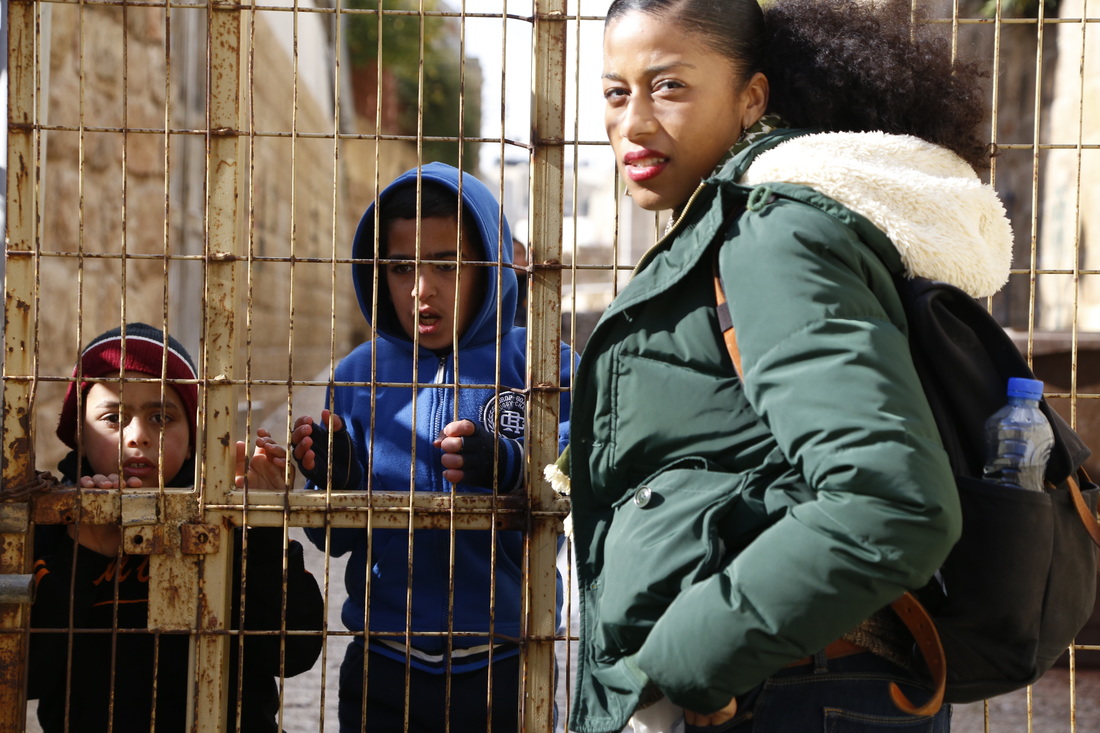
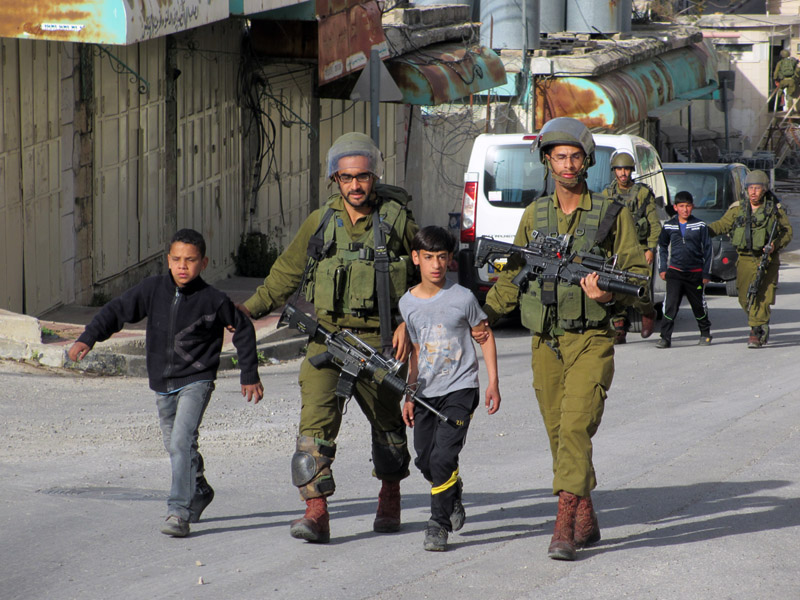
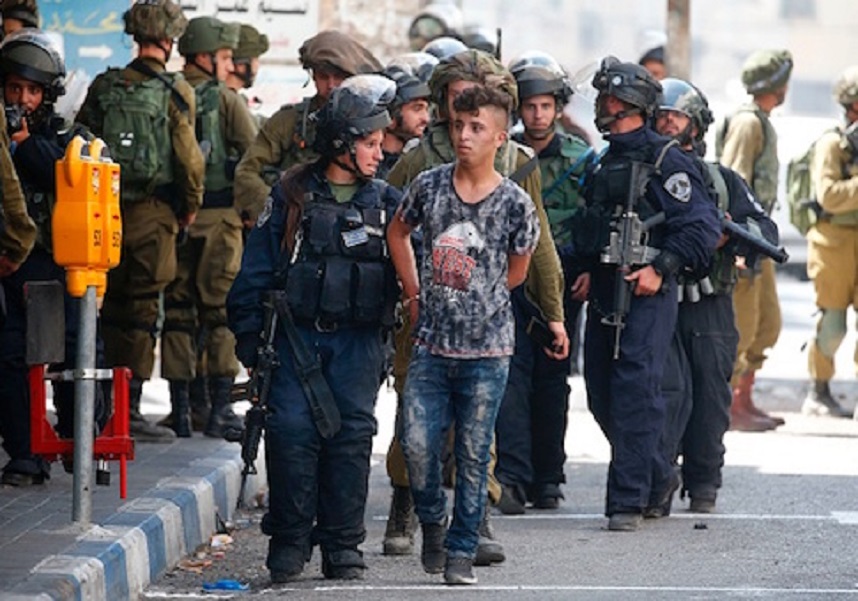 According to Defense for Children International (DCI), a Geneva-based
non-governmental agency, 700 Palestinian
children in the West Bank
alone are detained and imprisoned by Israel
every year. Furthermore, based
on a survey of 100 of these children,
lawyers found that 69% were
beaten and kicked, 49% were threatened, 14% were
held in solitary confinement, 12% were threatened with sexual assault,
including rape, and
32% were forced to sign confessions written in
Hebrew, a language they do
not understand. Such institutionalized and
systematic mistreatment
is considered torture by the United Nations
under international law and
specifically contravenes the Convention on the
Rights of the Child to which
Israel is a signatory.
According to Defense for Children International (DCI), a Geneva-based
non-governmental agency, 700 Palestinian
children in the West Bank
alone are detained and imprisoned by Israel
every year. Furthermore, based
on a survey of 100 of these children,
lawyers found that 69% were
beaten and kicked, 49% were threatened, 14% were
held in solitary confinement, 12% were threatened with sexual assault,
including rape, and
32% were forced to sign confessions written in
Hebrew, a language they do
not understand. Such institutionalized and
systematic mistreatment
is considered torture by the United Nations
under international law and
specifically contravenes the Convention on the
Rights of the Child to which
Israel is a signatory.
